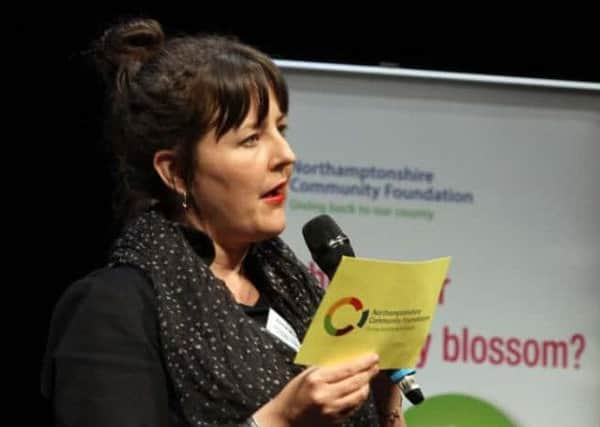Column: Food insecurity is a national shame


As reported in the Chronicle and Echo within the last week, the Government admitted that Universal Credit is likely to blame for rising food bank use.
Only last year the United Nations Special Rapporteur Philip Alston’s report on extreme poverty in the UK highlighted the causal link between the current benefits system and the dramatic rise in food insecurity.
Advertisement
Hide AdAdvertisement
Hide AdHowever, when confronted with the overwhelming evidence, the Government accused the UN representative of politicising the issue and chose not to acknowledge its findings.
The Northamptonshire Food Poverty Network has been campaigning for food insecurity to be measured as recommended in the aforesaid UN report and is also campaigning for universal credit reform.
They know that food bank use is soaring and the admission by Amber Rudd MP that this is directly related to the roll out of Universal Credit means the Government has the responsibility to put things right.
Food poverty is a public health emergency and needs to be tackled as a matter of urgency.
Advertisement
Hide AdAdvertisement
Hide AdThe Social Metrics Commission in providing evidence to the Government’s Work and Pensions Committee last month stated that the lack of an agreed measure has left the Government unaccountable for its policy action on reducing poverty.
In the meantime it came to pass that the current transport secretary Chris Grayling MP approved £800,000 to be spent on consultants to assess a contract bid whether the no ferry ferry company Seaborne Freight could provide ferries as part of the Government’s Brexit strategy. The contract was approved but subsequently scrapped.
These ‘magic money tree’ moments bring me back to UN Special Rapporteur Philip Alston’s report when he states that ‘poverty is a political choice’.
I’m no specialist in transport infrastructure but that’s £800,000 that could have been better spent on bringing back bus routes in a rural area where people are cut off from local services and at risk of social isolation than consultants reviewing the potential of a company that doesn’t do what it’s meant to do.
Advertisement
Hide AdAdvertisement
Hide AdThe Trussell Trust has recently published its findings that in the last year it distributed 1.3 million food parcels across its local food bank networks, a 13 per cent rise from the previous year.
The overall number is likely to be much higher as there are many independent food bank networks across the UK.
Only last month, following on from their latest report on Hunger and Malnutrition in the UK, the chairman of the Government’s Environmental Audit Committee, Mary Creagh MP, stated: “The combination of high living costs, stagnating wages and often, the rollout of Universal Credit and the wider benefits system, means that levels of hunger in Britain are some of the highest across Europe.
“We found that nearly one in five children under 15 is living in a food insecure home – a scandal which cannot be allowed to continue.”
Advertisement
Hide AdAdvertisement
Hide AdHow many reports do we need before action is taken? It should surely be enough that the United Nations, let alone the Government’s own committees and departments, and charities tackling food poverty have provided the evidence needed to show the direct link between rising poverty and Universal Credit.
I think the UN Special Rapporteur is right - poverty is a political choice. It must be because all the hard evidence is blatantly being ignored.
I won’t do a roll call of Philip Alston’s considerable CV, but this guy is a professor at the New York University School of Law and co-chair and faculty director of the Centre for Human Rights and Global Justice.
He travels the world on behalf of the UN on fact-finding missions relating to the levels and causes of poverty in countries of concern with a view to making recommendations to tackle poverty.
Advertisement
Hide AdAdvertisement
Hide AdGiven the choice between a consultancy report on ferries from the Department of Transport and a UN report on extreme poverty and how to tackle it in the UK, I know who I would be taking recommendations from.